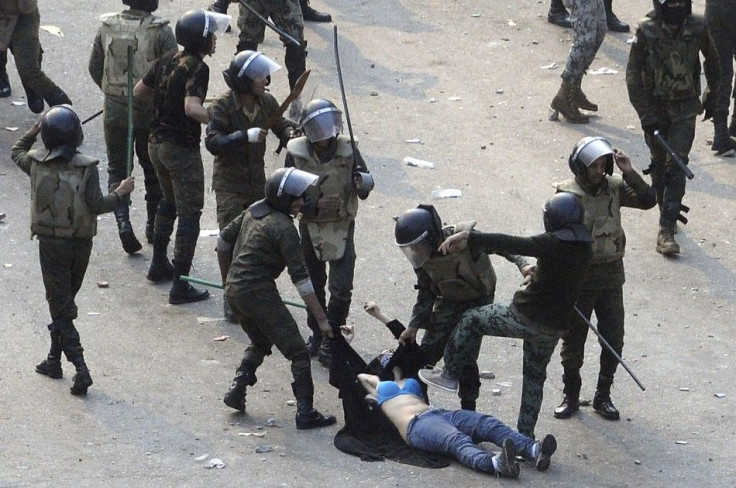Egypt Sheikh Criticizes Girl Stripped by Soldiers: 'Who Let Her Out on The Street?'

Commenting on the shocking photograph of a woman, stripped by soldiers, during the clashes between Egypt's armed forces and anti-military protesters, Egyptian Sheikh Khaled el-Gendy said that the woman was responsible for whatever happened, by participating in the protest in the first place.
The woman who was stripped, I want to say that we all refuse that and we all condemn it, el-Gendy said in a comment on the al-Qahira al-Youm news program on Dec. 19, according to a Bikya Masr report.
But there are more questions, who let her out in the street and why was she there, and how could the women deal with these people and other questions, el-Gendy added.
The woman being referred to made worldwide headlines on Dec. 18, after images and video of her being stripped by the military members were circulated across the Egyptian and international media outlets.
Even though Egypt's conservatives and liberals lashed out at the military violence towards women, el-Gendy thinks that implementation of Islamic Sharia (law) would control what happens in the country.
El-Gendy, who worked as a mathematics teacher, offered his condolences to those who died during the clashes, but expressed greater sorrow over the burning of the scientific buildings, Bikya Masr reported.
The protests, which began only a day after the first free elections in Egypt, were triggered when the armed forces stormed an anti-military protest camp outside Egypt's Cabinet building on Friday.
Watch Video:
© Copyright IBTimes 2025. All rights reserved.





















